
- Home
- India
- World
- Premium
- THE FEDERAL SPECIAL
- Analysis
- States
- Perspective
- Videos
- Sports
- Education
- Entertainment
- Elections
- Features
- Health
- Business
- Series
- In memoriam: Sheikh Mujibur Rahman
- Bishnoi's Men
- NEET TANGLE
- Economy Series
- Earth Day
- Kashmir’s Frozen Turbulence
- India@75
- The legend of Ramjanmabhoomi
- Liberalisation@30
- How to tame a dragon
- Celebrating biodiversity
- Farm Matters
- 50 days of solitude
- Bringing Migrants Home
- Budget 2020
- Jharkhand Votes
- The Federal Investigates
- The Federal Impact
- Vanishing Sand
- Gandhi @ 150
- Andhra Today
- Field report
- Operation Gulmarg
- Pandemic @1 Mn in India
- The Federal Year-End
- The Zero Year
- Science
- Brand studio
- Newsletter
- Elections 2024
- Events
In Photos: Assam’s Rabha community offers a visual treat during Baikho puja

The Rabha community of Assam has gained recognition for its persistent struggle against governmental powers and its quest for sixth-schedule status. Known for their resilience, the Rabhas are an agrarian tribal community with a history marked by conflict and neglect from authorities.A male Baibra (priest) performs rituals during Baikho festival in Gamerimura village, Kamrup district of...
The Rabha community of Assam has gained recognition for its persistent struggle against governmental powers and its quest for sixth-schedule status. Known for their resilience, the Rabhas are an agrarian tribal community with a history marked by conflict and neglect from authorities.
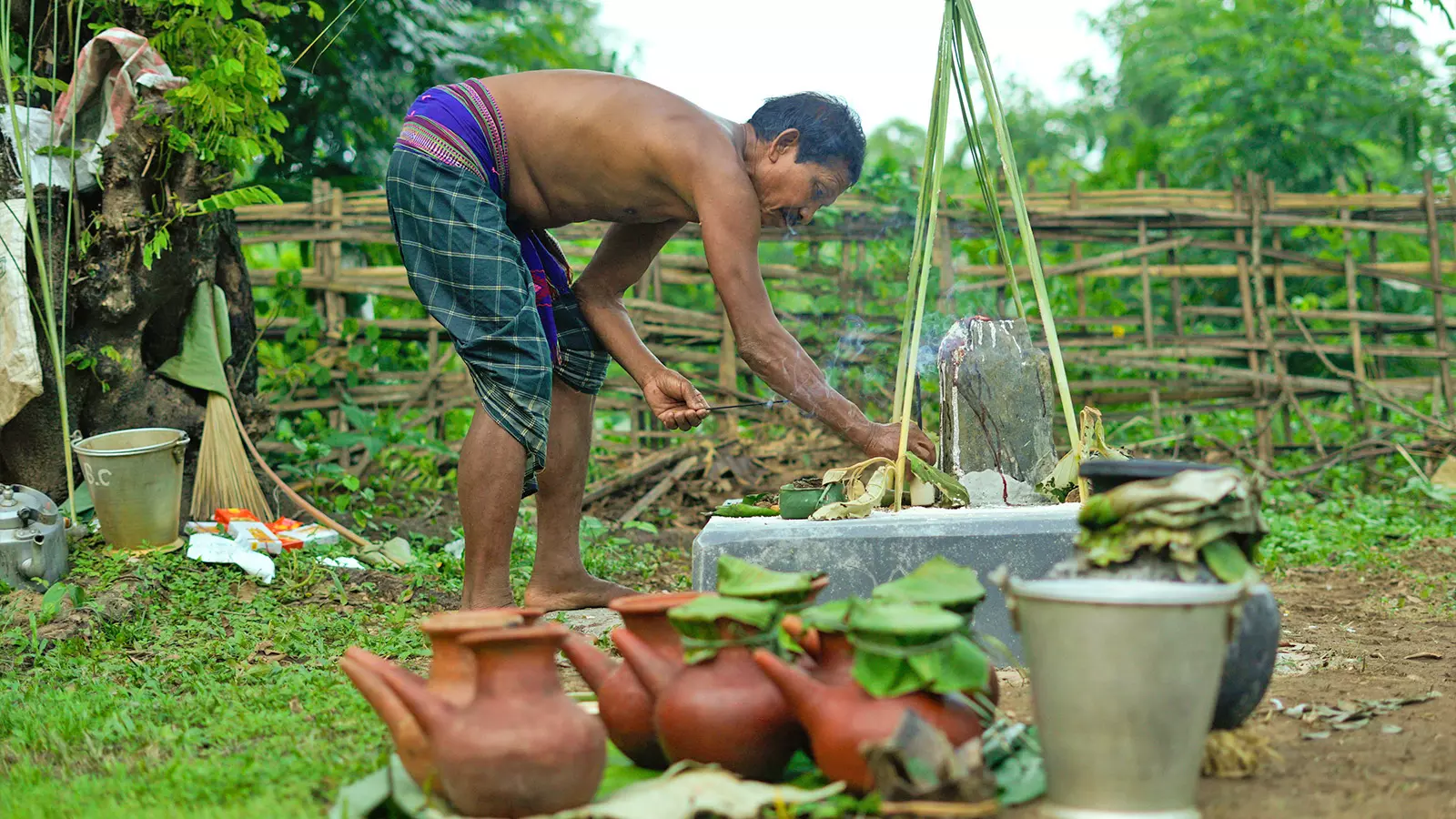
A male Baibra (priest) performs rituals during Baikho festival in Gamerimura village, Kamrup district of Assam. Photos: Surajit Sharma
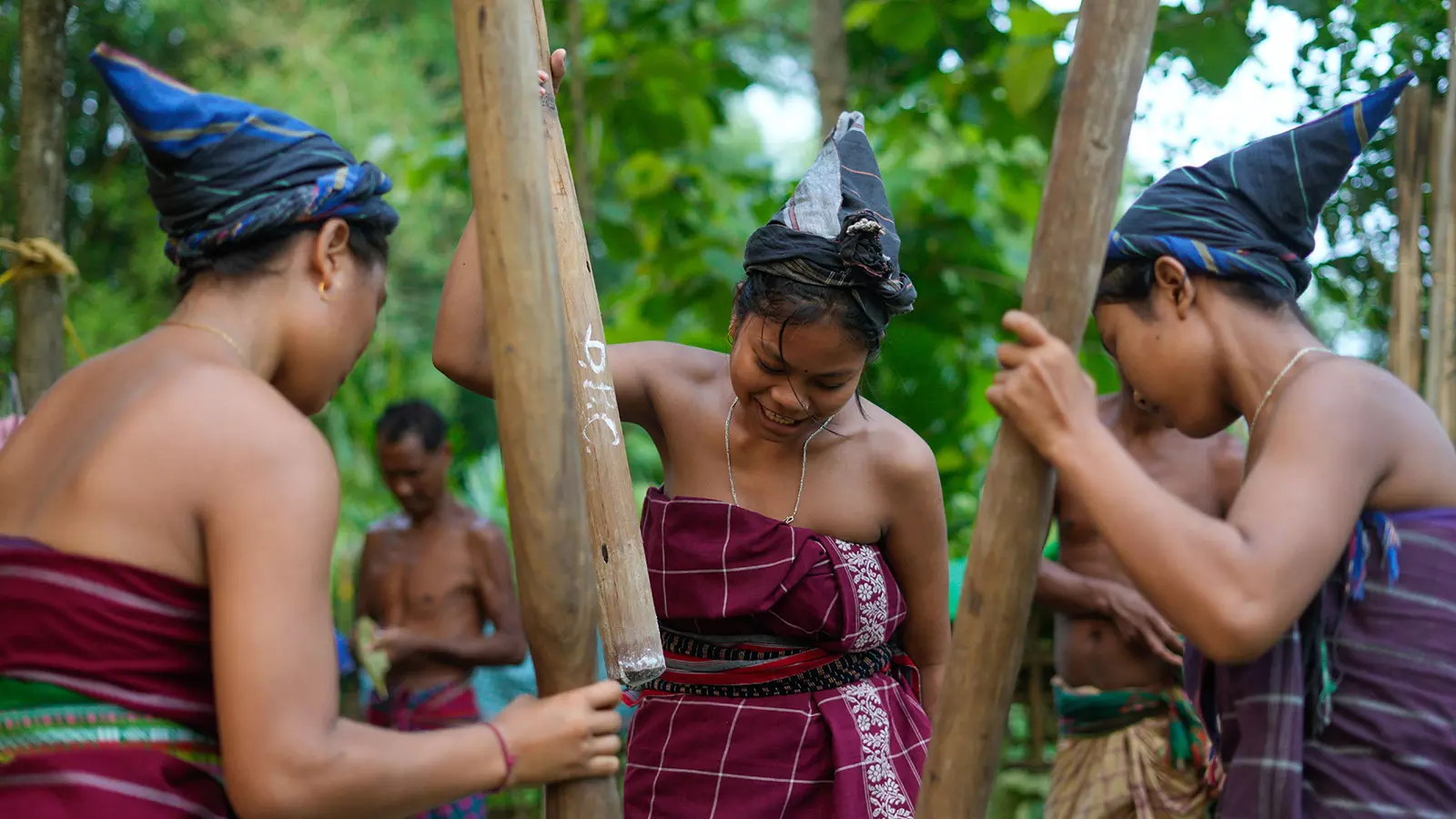
Female Baibra (priest) wearing traditional Rabha attire grind rice powder, which they will later smear on their bodies during the Baikho festival.
Despite these challenges, they have managed to thrive. Predominantly found in Assam, Meghalaya, and West Bengal, the Rabhas boast off a rich cultural heritage and vibrant traditions, waiting to be explored.
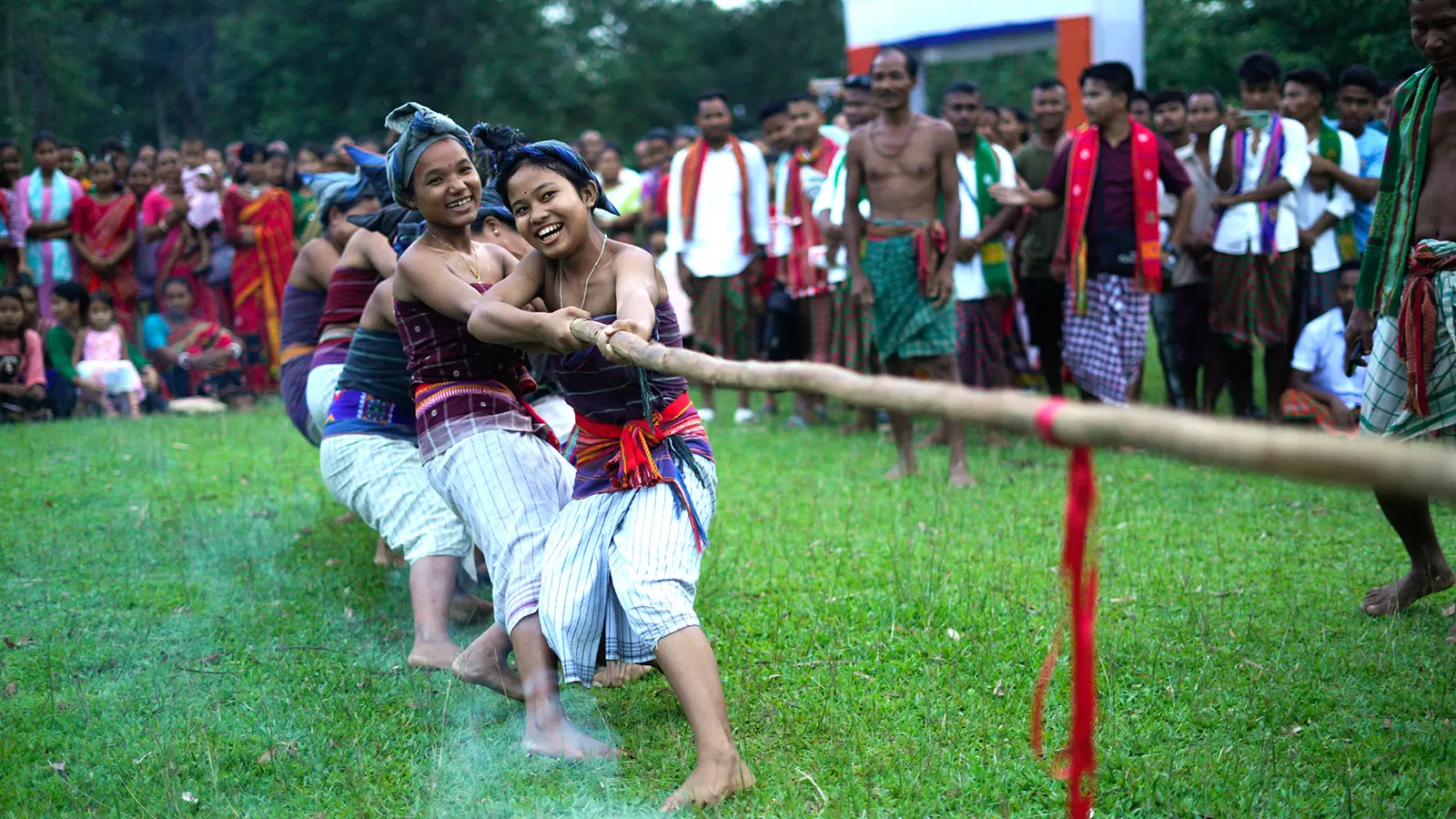
Girls dressed in traditional Rabha attire participate in 'Leuwa Bokai,' a tug of war event where they pull a thick tree vine known as 'Leuwa' instead of a rope.
Among the various festivals celebrated by the Rabha tribe, Baikho puja is the most significant. This pre-harvest festival is celebrated in April, May or June, just before the commencement of the sowing season. In the one-day event, prayers are offered to 13 deities, including 10 female and three male gods, with the primary deities being Shiva and Parvati. What makes the rituals unique is the slaughtering of pig as an offering to the deities, a practice not observed among other tribes or communities in the Northeast.
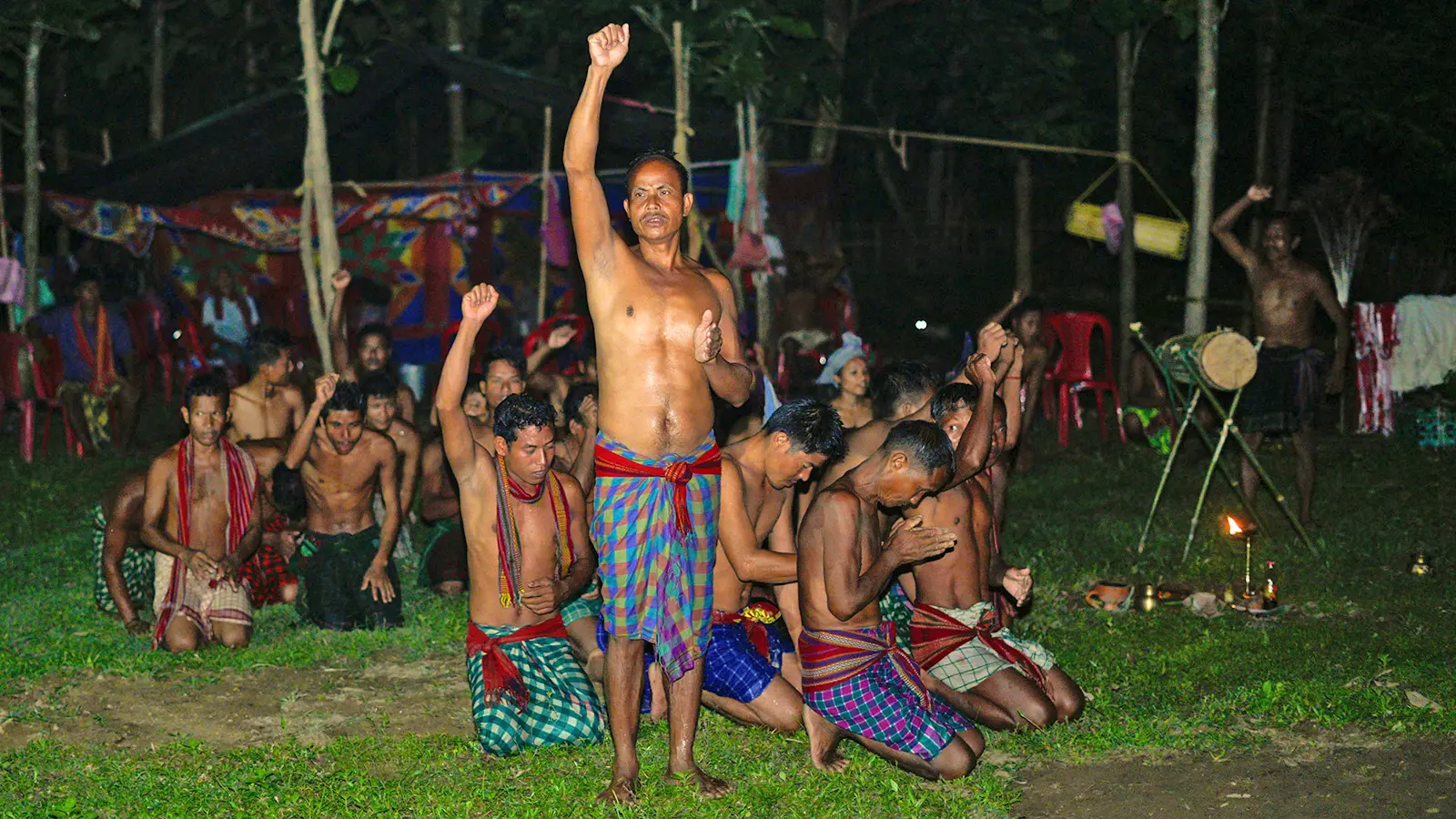
The Baibra offer prayers to their deities before proceeding to perform ‘Dhawa’ (a symbolic war against evil powers).
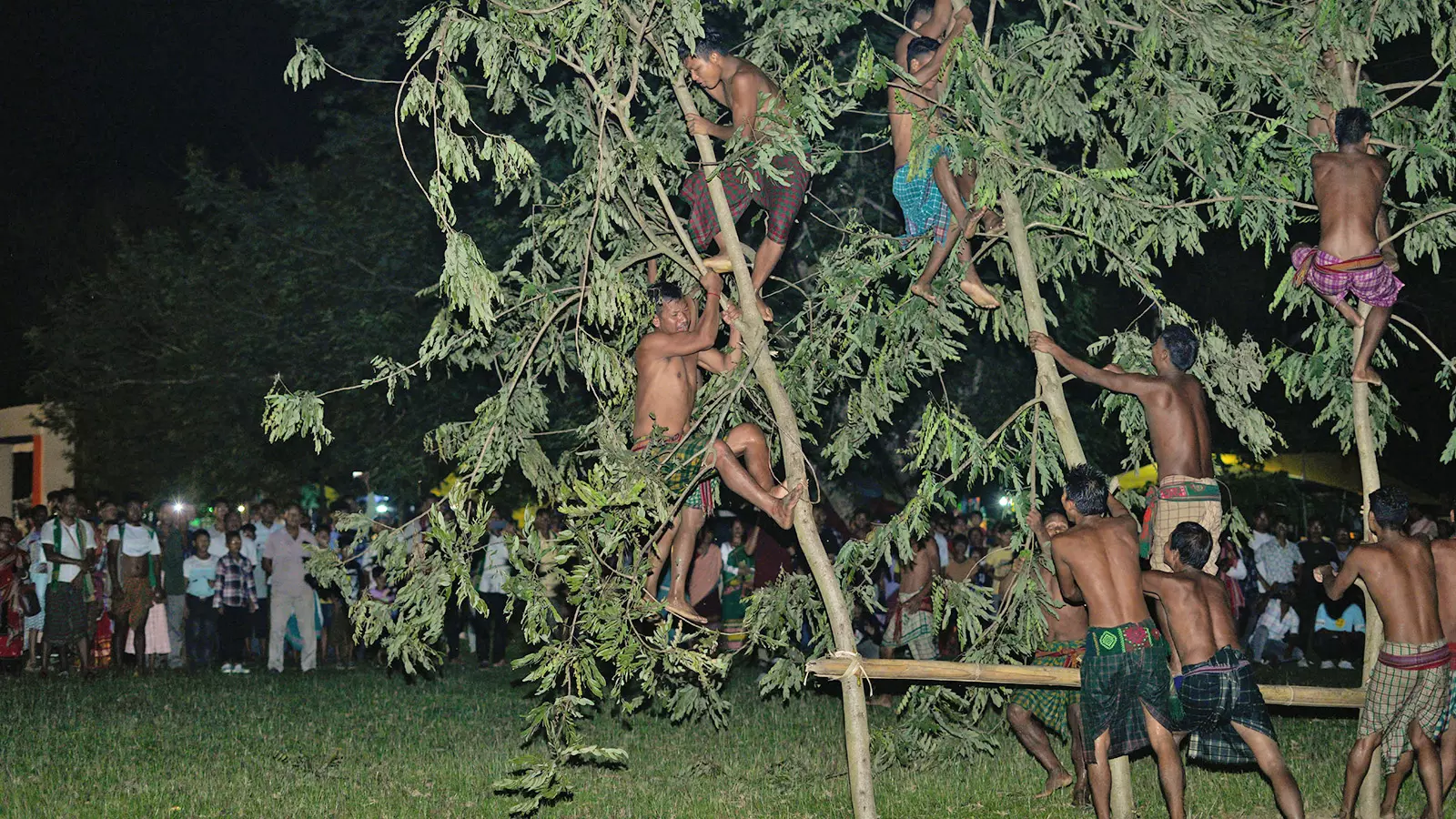
The male Baibra perform ‘Dhawa’ (a symbolic war against evil powers).
The festival involves the participation of young boys and girls called 'baibra' (priests), in addition to the head priest. As dusk settles, a ritualistic ‘Leuwa Bokai’ (tug of war) is held among both men and women, who pull a thick tree vine instead of a rope, known as 'Leuwa'. This is followed by a symbolic war called 'Dhawa' where the male baibra fight against a few trees planted as enemies. After defeating the enemies, all the males change into traditional white gowns and smear their bodies with a concoction of rice powder and 'Choko' traditional liquor. The girls also take part in this ritual.
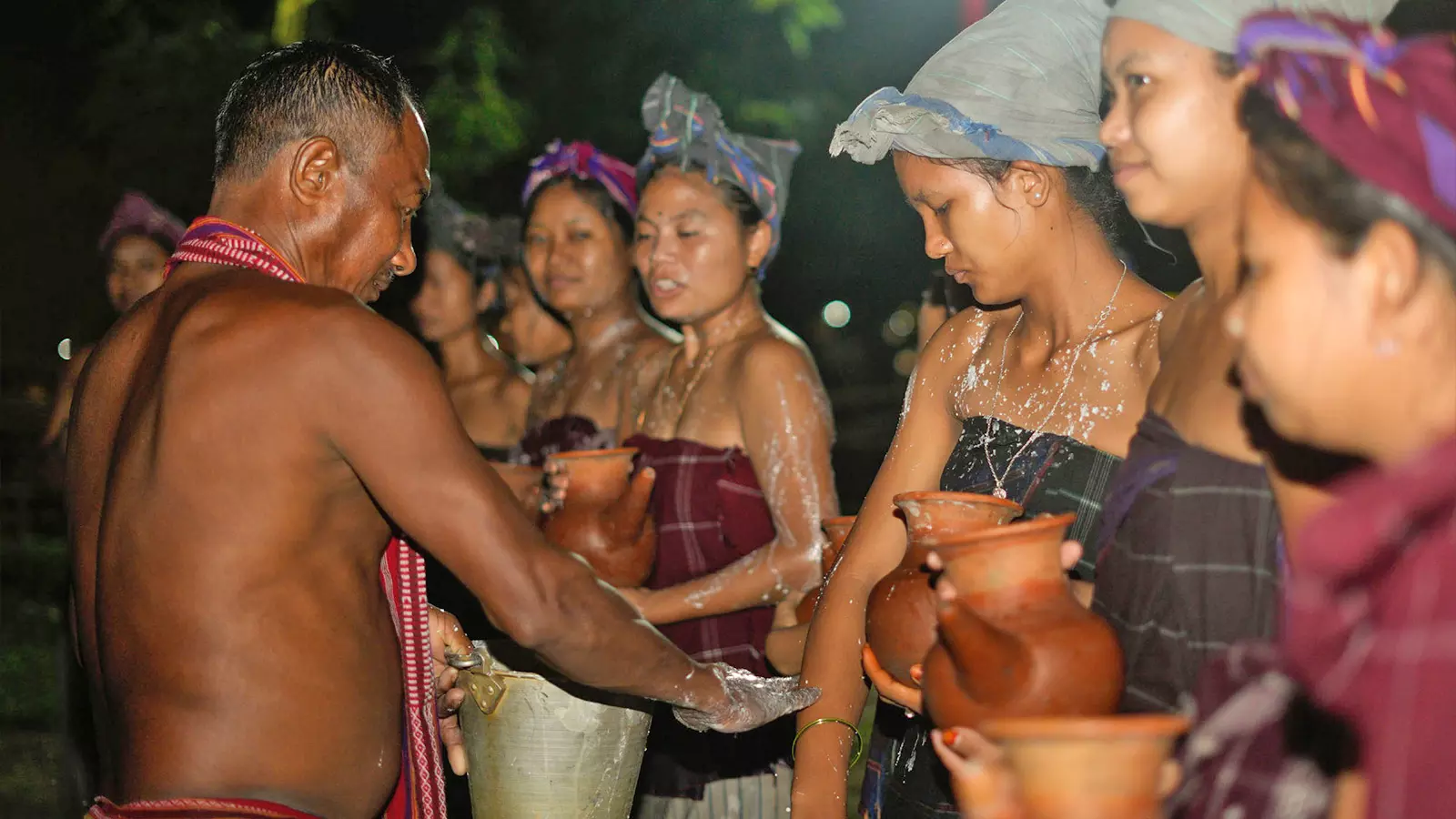
The Baibra smear their bodies with a concoction of rice powder and 'Choko' (traditional liquor) before proceeding to perform 'Bar Nak-Kai' (conquering of the fire) ritual.
Following that they set ablaze a tall structure made of bamboo. The baibra, dressed in white and headgears made of leaves engage in a fervent dance around the fire in the tune of traditional instruments.
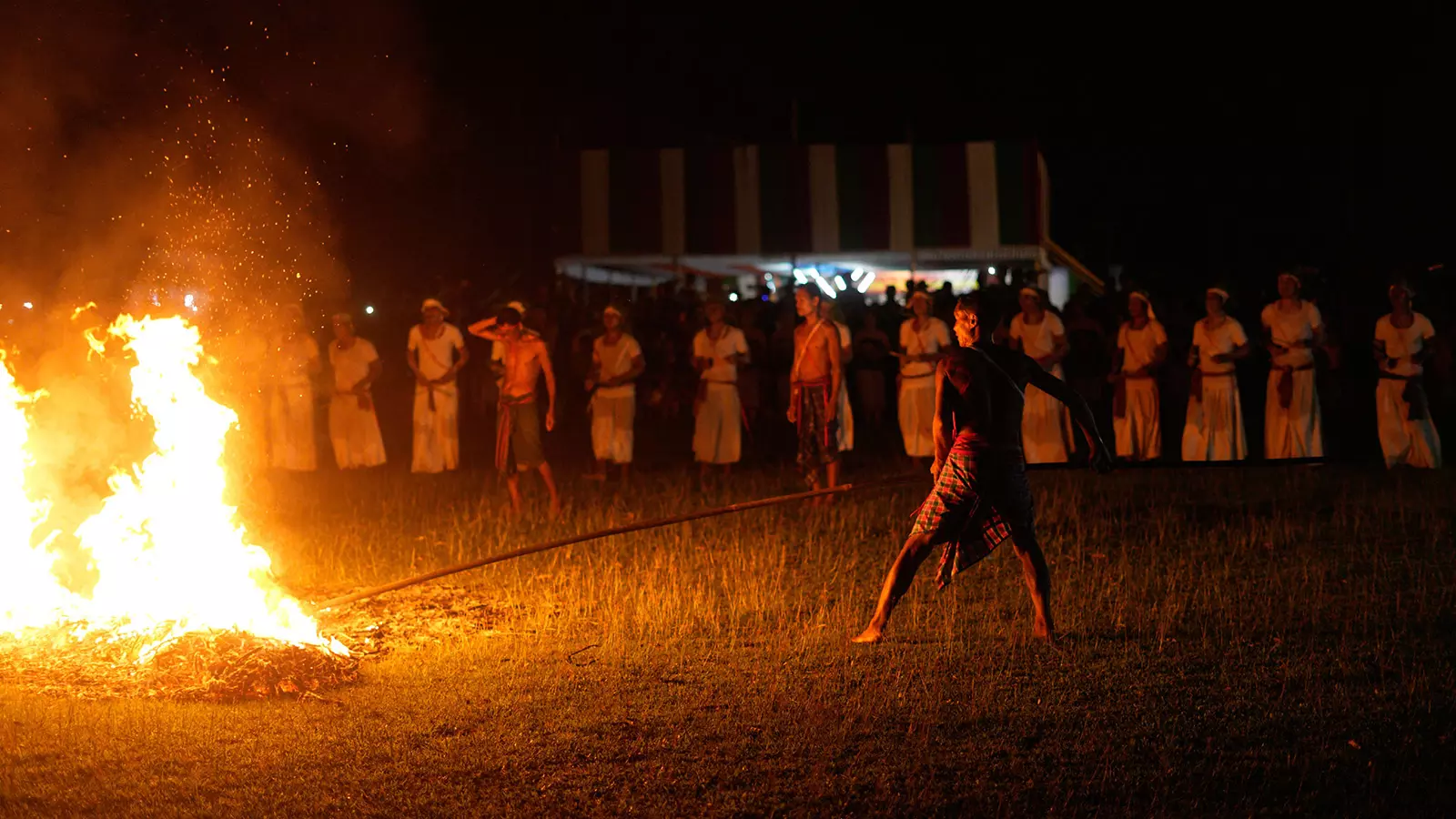
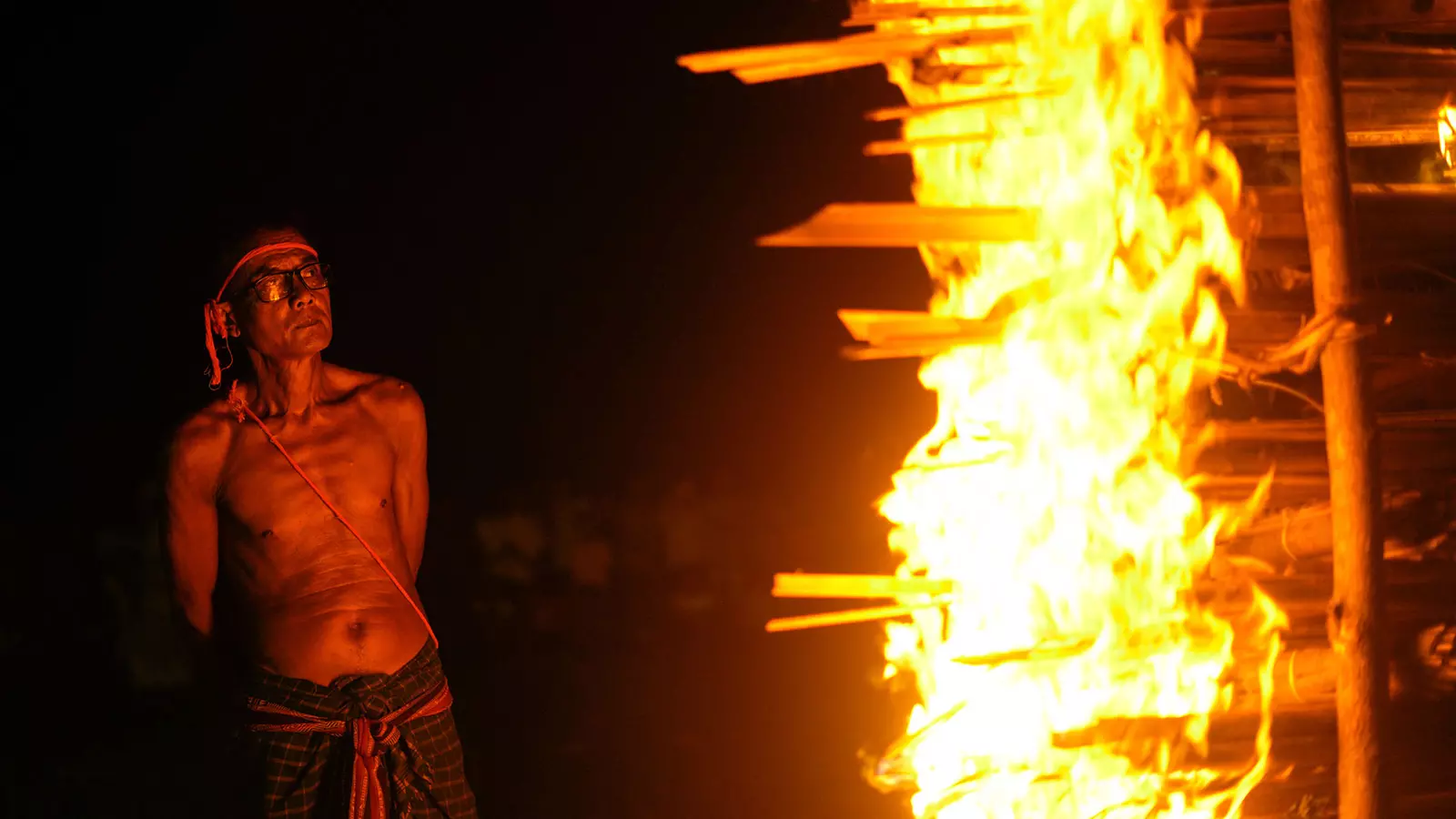
The Baibra burn a bamboo made structure.
The ritual is called 'Bar Nak-Kai' (conquering of the fire). The highlight of the festivals comes when the priests courageously run over the hot coals, a breathtaking moment that left spectators awestruck. As a token of appreciation for their efforts in safeguarding the community and crops, the priests were offered traditional liquor by the girls.
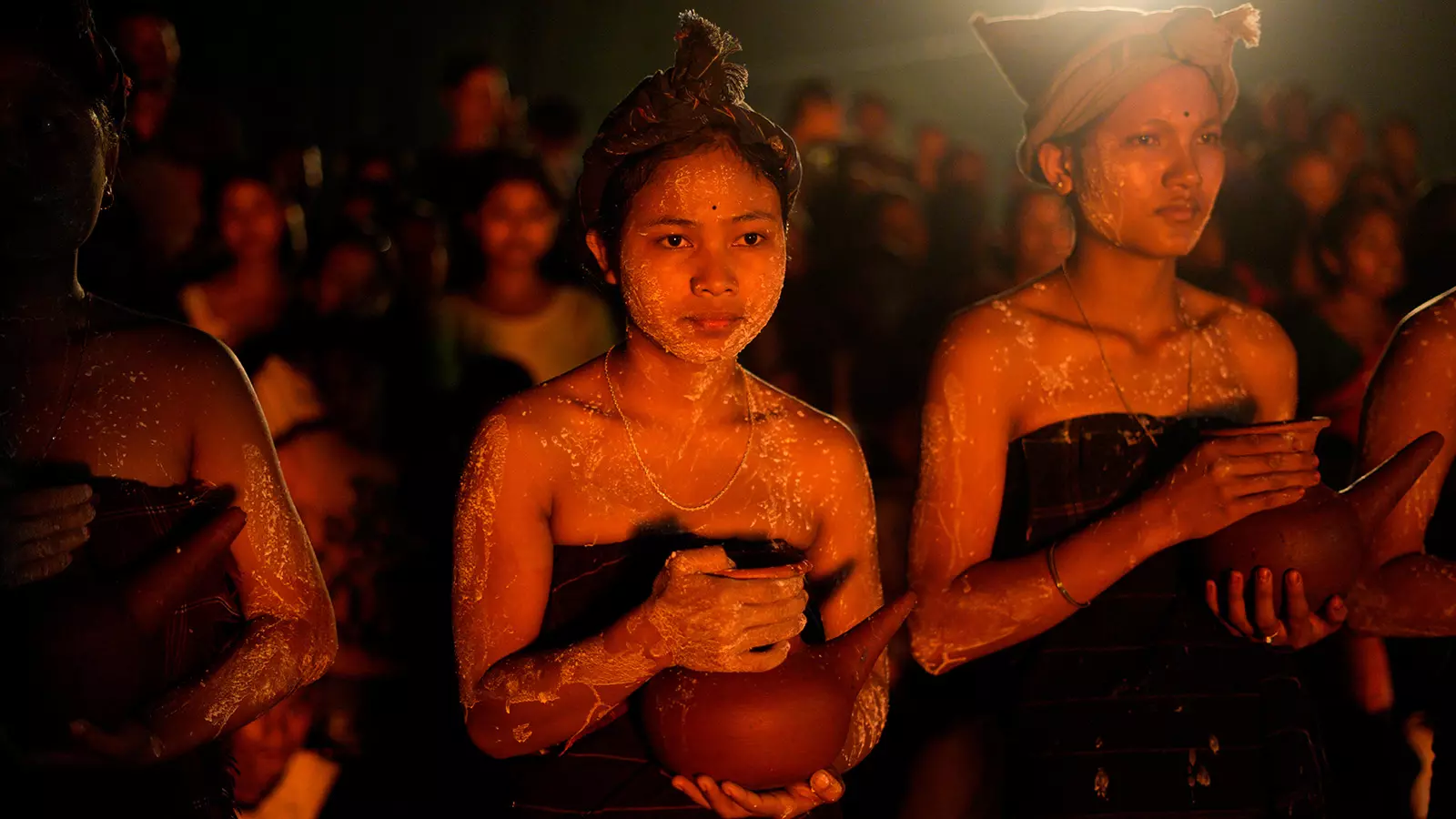
The female Baibra carry 'Choko'.
Baikho is celebrated in all Rabha habitat villages of Kamrup and Goalpara districts of Assam. In Gamerimura village near the Assam-Meghalaya border, in Kamrup district of Assam, locals recently gathered on June 1 to celebrate Baikho. The vibrant festivities have been attracting numerous tourists.
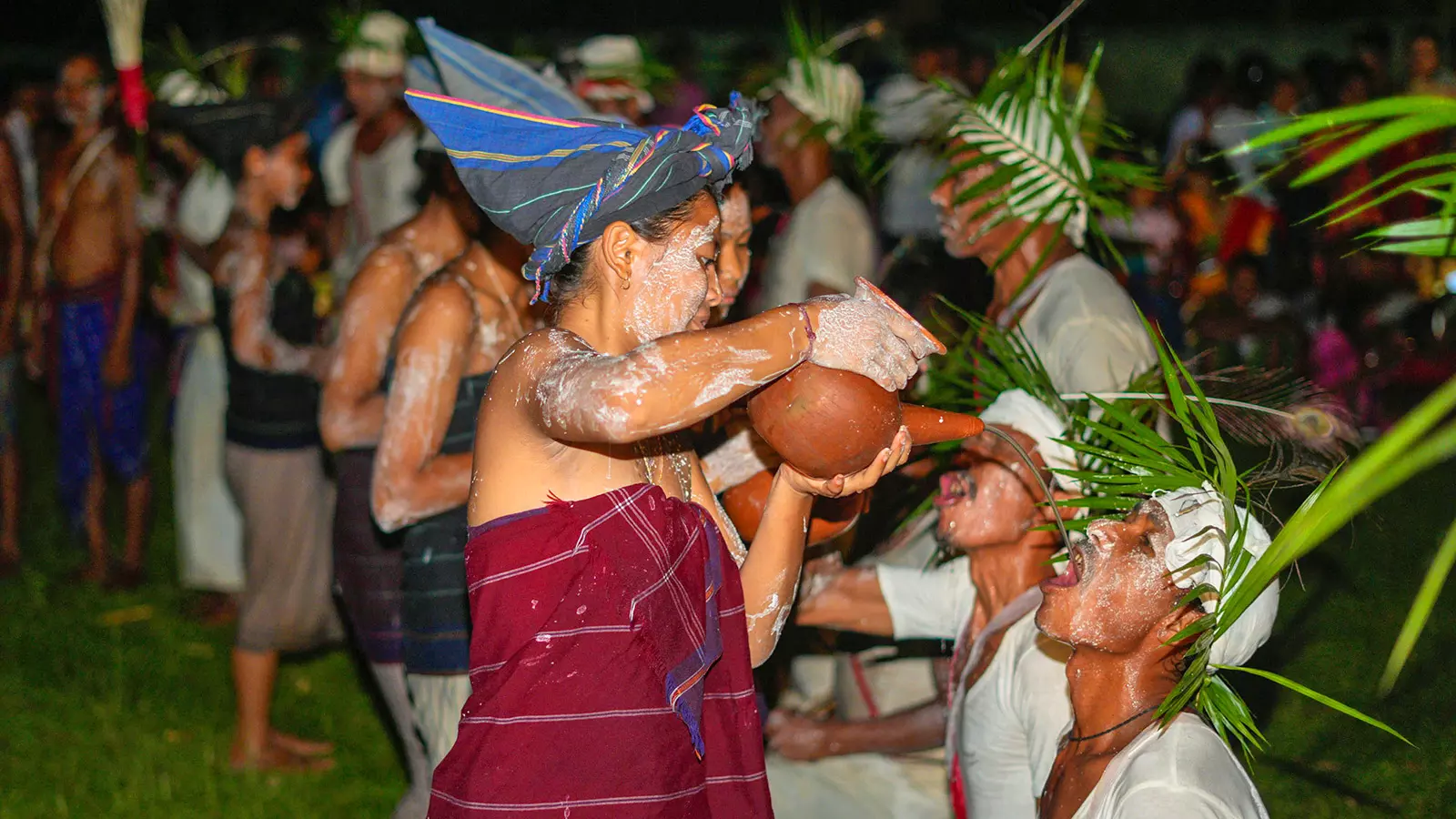
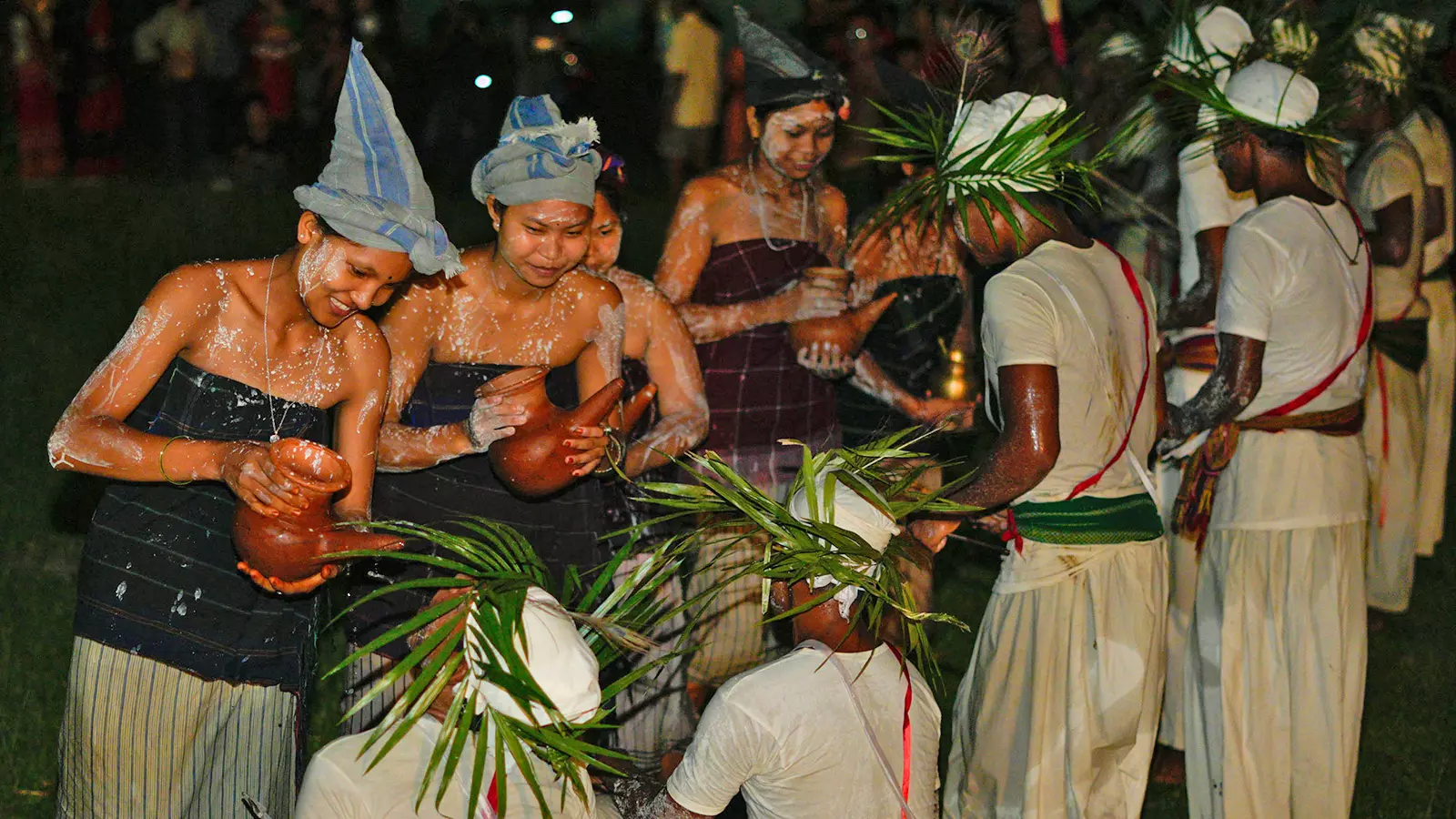
Girls offer traditional liquor to the male Baibra after performing 'Bar Nak-Kai' dance.
Baikho stands as one of the most captivating traditional festivals of Northeast India, yet to be fully explored. Its vibrant traditions and rituals offer a glimpse into the rich cultural heritage of the Rabha community.
